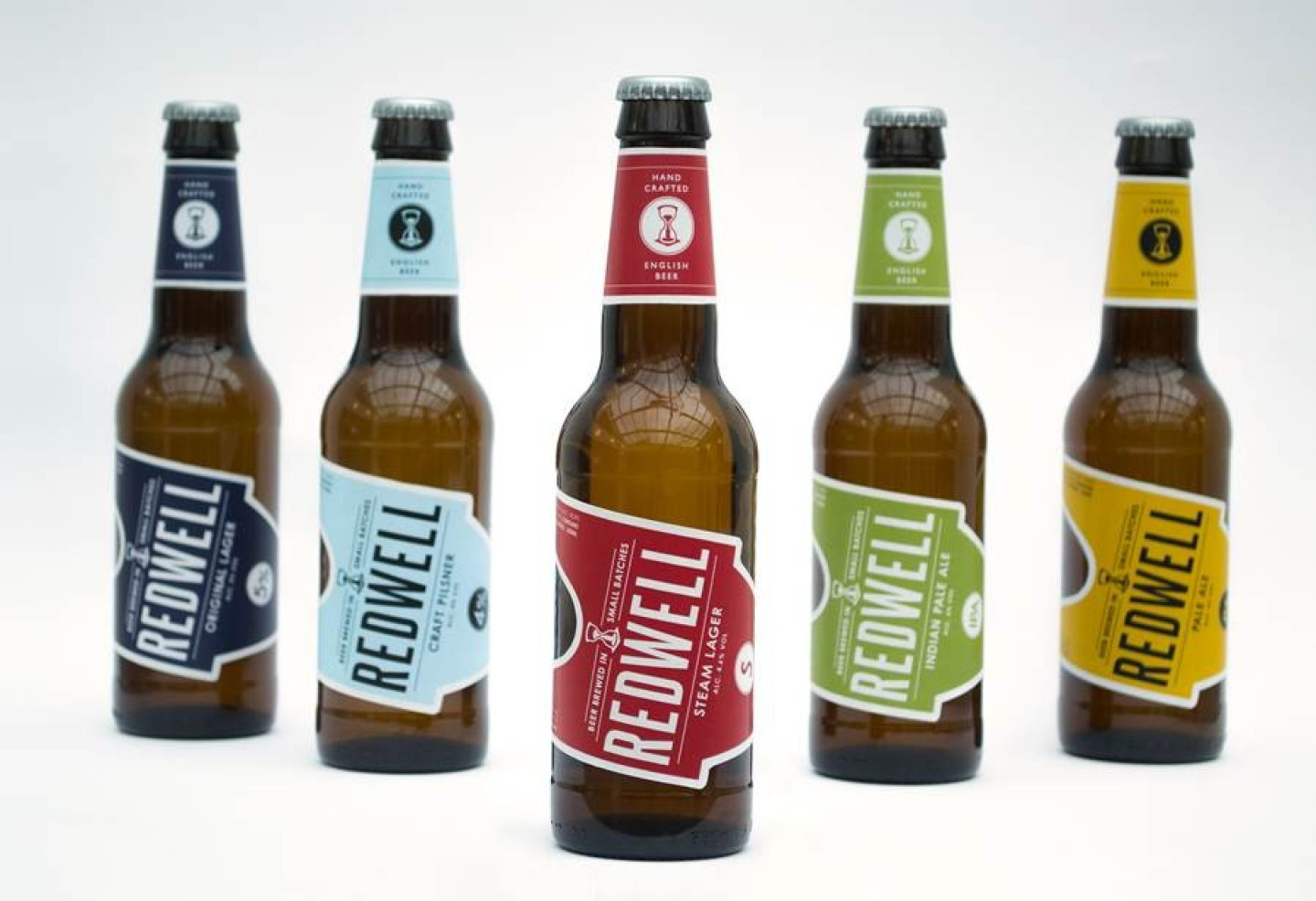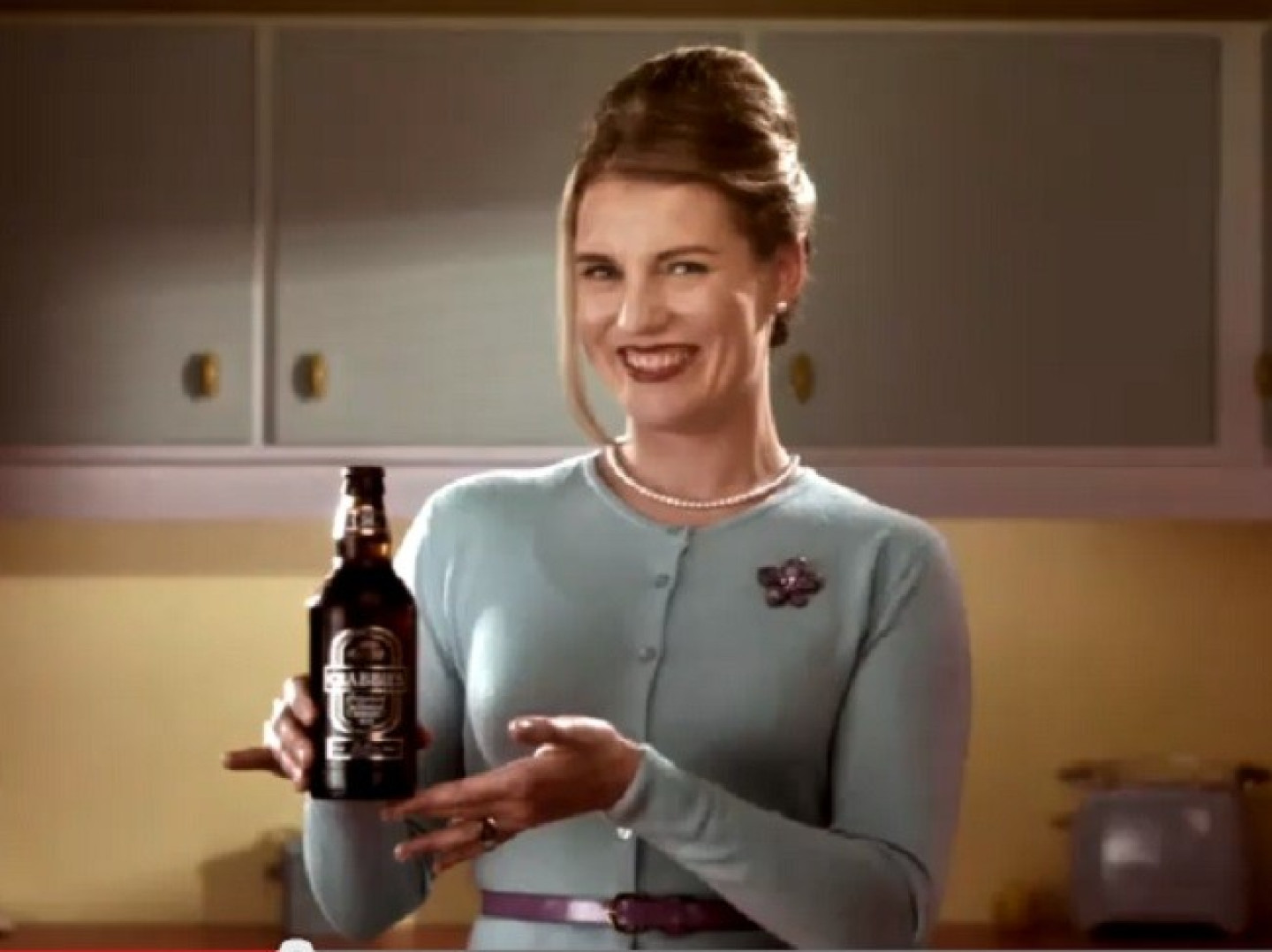Battle of the Brands: Redwell and TicketyBrew Breweries in Trademark Clashes with Red Bull and Crabbies

Would you pick up a beer branded Redwell, mistakenly confusing it for the energy drink Red Bull?
Well, the latter feared you might and so called in its lawyers against Redwell, a small brewery based in Norwich with just eight members of staff.
It all started when Redwell submitted its trademark application for their beer's eponymous name at the beginning of May.
By the end of the month they had received their first letter from Red Bull, warning against using the name as, in the view of their lawyers, it's too similar and risks confusing consumers.
Just ten days later a second letter came from Red Bull, this time more aggressive in tone. It threatened legal action against the small brewery unless they responded immediately.
"It's such a huge, massive company that when you get something like that through the instant thing that pops into your head is worry," Patrick Fisher, Redwell's owner and co-director, told IBTimes UK.
"When you've got somebody of that stature, with the financial muscle that they've got, you're like 'is this really happening? Could they do this to us?'.
"Then of course we received that second letter. Fear swept over us all because it seemed like they were incredibly serious about forcing us to change our name. That fear has just been there for the last couple of months."
Fisher added: "The brewery's been a great success since we first launched, but there has been a dark cloud hanging over it which has been the Red Bull case whilst all that success has been going on."
Huge legal expense
Redwell was forced to hire a solicitor to deal with Red Bull's lawyers, based in Austria, at a "huge expense" as contact between the two parties was almost daily.
The Austrian lawyers "were really gunning for us," he adds. "It has certainly cost us extra money that we couldn't really afford, but we had to find it to protect our name."
The popular brewery received a swell of public support on social media, as well as press coverage of their battle with Red Bull to keep hold of the name, which comes from a street in Norwich.
When the public pressure mounted on Red Bull, who were losing the battle for hearts and minds on Twitter at least, the UK office stepped in.
"As soon as the UK people got involved, the Austrian arm of Red Bull seemed to take a less aggressive stance and a bit of common sense started to prevail, eventually leading to us all having a conference call ... where everyone important was present and the situation was resolved in 20, 25 minutes," said Fisher.
However, he claims Red Bull released a statement prematurely declaring the matter resolved, as no agreement had been reached and the solicitors were still thrashing out a deal.
"They did it to prevent more bad press at the time, is our belief, because we started to receive a lot of messages on Twitter, a lot of phonecalls from the various media sources saying 'can you give us an update on this agreement you reached'," Fisher said.
"We were like, sorry, what agreement? The solicitor's on the other phone going 'there's no deal, Patrick. There's definitely no deal'.
"It was very cheeky, but the very next morning when Red Bull UK started to flex their muscle and get involved in the situation they were very apologetic to us about this press statement being released. The UK arm of Red Bull seems to be the ones who have brought common sense to the table and have resolved the situation as quickly as possible."
The agreement is that Redwell will never enter the energy drinks market, something Fisher said they would "not do in a million years" anyway as they are solely focused on the beer market.
"We're very grateful for all the public support because we don't believe we would still be able to use our name unless the public had got behind us in the way they have and we just can't thank them enough," he said.
Red Bull has yet to respond to IBTimes UK's request for comment, but said in a statement it had earlier released to the BBC that "there is no dispute here".
"Red Bull has long been willing to allow Redwell to maintain its mark for beer so long as they do not use it for energy drinks," the spokesman said.
Tickety Brew and Crabbies
However, as one such dispute was resolved, another seemed to begin.
Small family-run outfit TicketyBrew in the north west of England said it came under pressure from Crabbies, which makes alcoholic ginger beer, because it saw a likeness with the "tickety-boo" catchphrase on some of its adverts.
"Crabbies have trademarked the phrase "tickety boo" and as they use it in some of their ads (albeit I can't find it on their website) they feel we're confusing and hurting the Crabbies brand, and people could mistakenly purchase our beer thinking it is Crabbies Ginger Beer," tweeted TicketyBrew.

When asked by another Twitter user if they were seeking legal advice, TicketyBrew said the firm doesn't have any money left.
"It's all gone in the beer. We can't take the risk of losing this and picking up all costs," the brewer said, later adding "we don't want to hurt or misrepresent Crabbies in any way, we just want to brew beer and keep the name we have built up."
However, after a meeting between the two parties - Crabbies' owner Halewood International and TicketyBrew - the matter appears to have been resolved.
"Our intention at all times has been to open discussions to reach an amicable agreement around the similarities between our earlier registered trade mark 'Tickety boo' and the trade mark application for 'TicketyBrew'," said a spokeswoman for Halewood.
"We are pleased to have spoken with TicketyBrew to confirm we have no plans to oppose their trade mark application.
"As a company we are always supportive of other independent businesses and have acted with integrity at all times throughout this process.
"Trade mark law is often misunderstood, which can cause unnecessary concern for interested parties, so we are pleased to have come to a resolution with TicketyBrew and wish them well for the future."
TicketyBrew also said the disagreement had been settled.
"We have spoken to the Marketing Director at Halewood International and would like to thank them for being fair and reasonable," said Keri Barton from TicketyBrew.
"We are relieved to have reached an amicable solution and that Halewood International will not be opposing our trade mark application."
Samuel Smith, Copton and a white rose
These are not the first trademark battles between brewers.
In 2011, the Samuel Smith brewery took Yorkshire independent Copton Brewery to court over its use of a white rose on two of its beers.
Samuel Smith claimed the use of the Yorkshire white rose, famed for its symbolism in the county's conflict with Lancastrians that led to a Tudor monarchy, infringed on its trademark of a stylised white rose for some of its own products.
The judge found one of Copton's white rose branded beers damaged Samuel Smith's trademark, though not the other.
"I think it's a real shame when big brands resort to using bullish tactics to 'protect' their brand," said Marverine Cole, one of the country's leading beer bloggers at Beer Beauty and advocate of the microbrewery industry.
"The reality is that many microbreweries are exactly that - they are, in comparison to corporate heavyweights, tiny businesses, often run by a handful of family members and /or friends, and no huge cash reserves with which to fight any legal challenge mounted against them.
"The British brewing industry is one of the nation's most inspirational manufacturing success stories and people are sitting up and taking notice of that. But what some of these big brands also don't bank on is the huge swell of public support on social media that gets behind micro businesses when news like this breaks.
"It's time for large corporate companies to wise up and recognise that approaching matters in this way doesn't do the brand they are trying so hard to 'protect' any favours at all."
© Copyright IBTimes 2025. All rights reserved.






















